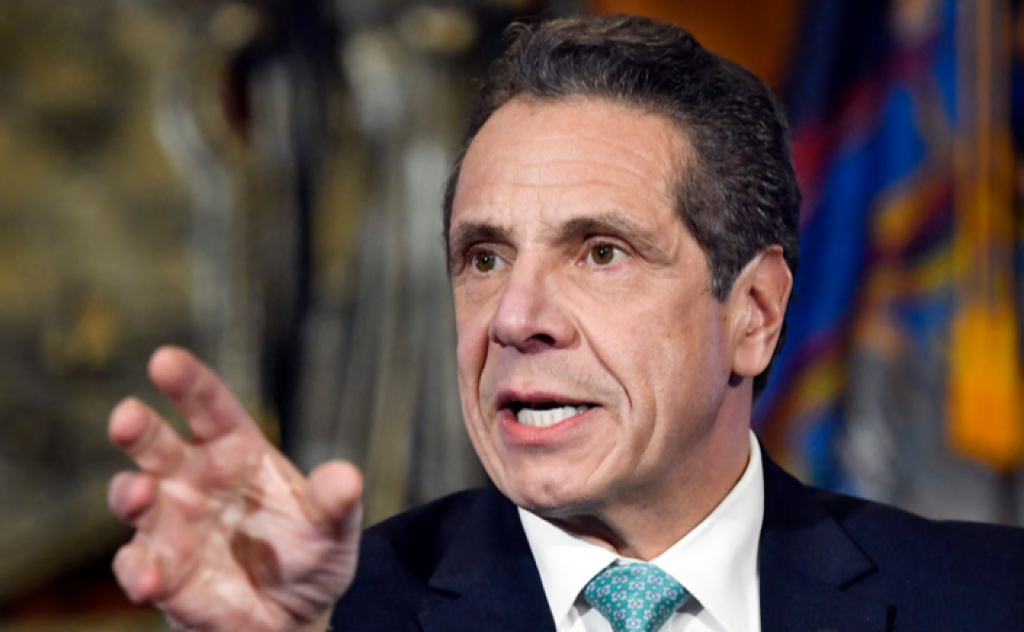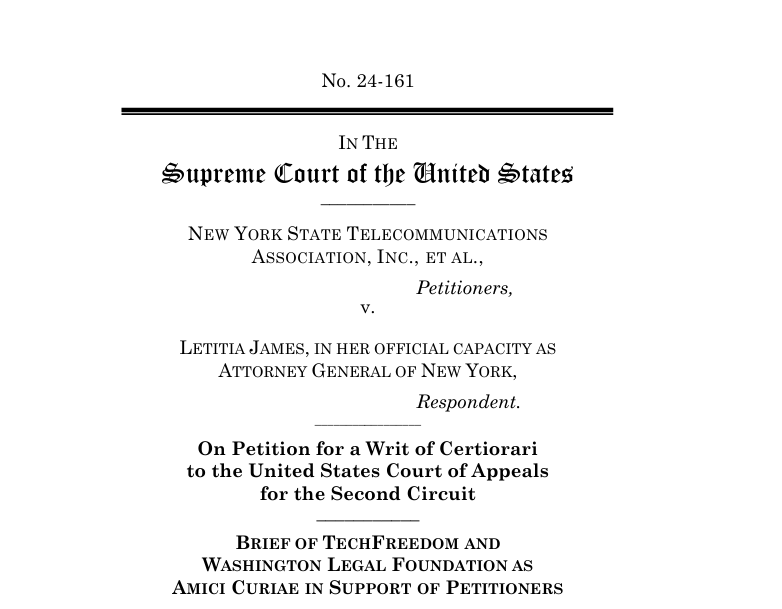Tech Think Tanks Fighting N.Y. Broadband Law in Supreme Court
Public Knowledge says Second Circuit 'got it right.'
Ted Hearn

WASHINGTON, Sept. 13, 2024 – Two tech think tanks want the Supreme Court to block states from regulating retail broadband rates.

Brief of Tech Freedom and Others
A panel of the U.S. Court of Appeals for the Second Circuit in June upheld a New York law called the Affordable Broadband Act that required Internet access providers to offer discounted rates to low-income residents.
But Tech Freedom and the Washington Legal Foundation want the 2021 New York law struck down as an unlawful encroachment on the nationwide deregulatory scheme established by the Federal Communications Commission in 2017 under Republican Chairman Ajit Pai.
"The Second Circuit’s ruling is extraordinarily harmful. The Second Circuit upheld the ABA only by improperly stacking the deck against Congress’s deregulatory objectives," Tech Freedom lawyer Corbin Barthold said in a Supreme Court amicus brief filed Friday.
John Bergmayer, Legal Director at Public Knowledge, a public advocacy group, said the states were entitled to fill regulatory voids left by the FCC.
"The Second Circuit, along with other courts, got it right when it found that the FCC under Chairman Pai gave up its authority to preempt state broadband laws, and that the Communications Act doesn’t preempt state regulation of information services,” Bergmayer told Broadband Breakfast.
Signed into law by Gov. Andrew Cuomo (D), the ABA requires ISPs to offer low-income consumers a basic service plan of 25 Mbps for $15 per month or 200 Mbps for $20 per month. The law has not taken effect because of the ongoing litigation.
At issue is the scope of state authority to regulate broadband ISPs after the FCC had classified them as lightly regulated information service providers under Title I of the Communications Act and not as heavily regulated common carriers under Title II of the same law.
The Second Circuit panel reasoned that when the FCC relied on Title I in 2017, New York state was free to adopt the ABA. If the FCC had gone with Title II, coupled with a ban on rate regulation, the ABA would have likely been unlawful and preempted.
Tech Freedom and the Washington Legal Foundation said the Second Circuit's reasoning would preclude FCC reliance on Title I to create a largely regulation-free landscape and shield ISPs from rate regulation at both the state and federal levels
"By imposing draconian rate regulation, New York’s law stands as an obstacle to the objectives Congress enshrined in Title I. The whole point of Title I status, after all, is to head off heavy-handed regulation, including rate regulation, be it at the federal or state level," the two think tanks said.
Tech Freedom is a non-profit focused on issues of Internet freedom and technological progress. The Washington Legal Foundation is a national public-interest law firm and legal policy center.
Amicus briefs in support of the N.Y. ISPs were also filed by the NCTA – The Internet & Television Association, the U.S. Chamber of Commerce, and the Multicultural Media, Telecom, and Internet Council.
In June, the FCC adopted Net Neutrality rules that imposed Title II on ISPs. Before the rules were judicially stayed on Aug. 1, FCC Chairwoman Jessica Rosenworcel told a House subcommittee that she would consider the lawfulness of the ABA if someone filed a complaint.
The Net Neutrality litigation in the U.S. Court of Appeals for the Sixth Circuit and the ABA case before the Supreme Court involve complicated legal questions unlikely to be resolved for several months.
Public Knowledge’s Bergmayer said he thought the ISPs should have postponed the fight with New York until after the Sixth Circuit ruled in the Net Neutrality case.
“Why the ISPs are bringing this to the [Supreme] Court now instead of seeing what happens with the FCC’s Title II litigation, I don’t entirely know," Bergmayer said.
N.Y.-based ISPs have asked the Supreme Court to hear their appeal and stay the ABA if the court agreed to take their case.
N.Y. Attorney General Letitia James – who has until Oct. 15 to file her brief with the Supreme Court – has said she would start enforcing the ABA if the Supreme Court took the case but denied the stay.









Member discussion